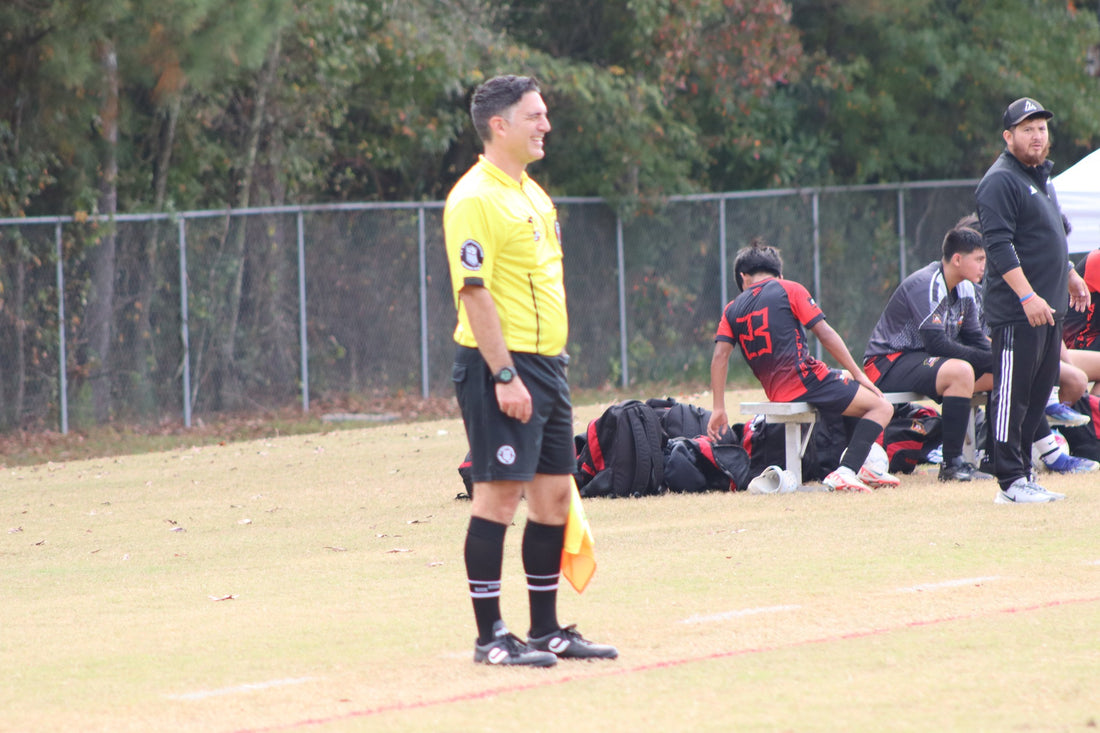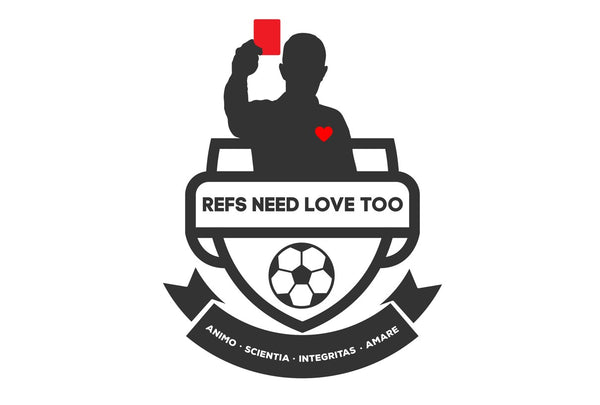
Why I Became a Soccer Referee: A Journey of Leadership, Passion, and Giving Back
Share
Throughout my life, I’ve gravitated toward leadership roles. Whether it was leading teams on the rugby field or stepping into organizational positions, being in charge felt natural to me. Rugby was a huge part of my life during college—I was president of the rugby team, a team captain, and a dedicated player. But by my senior year, after years of balancing intense playing and leadership responsibilities, I started to feel burnt out.
That’s when I first dipped my toes into officiating. During scrimmages, when I was sidelined due to injuries or stitches, I found myself stepping in to referee. It didn’t take long for me to realize I loved it. Officiating offered a different perspective on the sport, one that I found both challenging and rewarding.
From Rugby to Soccer
After college, life transitioned away from rugby, but the seed of officiating had been planted. Years later, when my kids started playing soccer, that passion resurfaced. My son, at the age of 10, decided he wanted to become a referee. I was already familiar with the basics from our time living in the Netherlands, where parents often officiated their kids’ games. Even though I didn’t speak Dutch fluently, I volunteered to referee matches for my son’s teams. Using hand signals and a few key phrases I picked up, I discovered how much I enjoyed contributing to the game this way.
When my son decided to get certified, I thought, “Why not join him?” I knew I’d be driving him to the fields anyway, so I signed up to get certified too. That was 10 years ago. Since then, I’ve refereed over 1,300 matches, and I haven’t looked back.
Giving Back to the Game
Becoming a referee has been one of the most fulfilling decisions I’ve ever made. Soccer has given so much to me and my family, and officiating has become my way of giving back. I see it as providing a vital service to the community—because, let’s face it, a bad referee can ruin a game. When players, coaches, and spectators see a skilled, confident official on the field, it makes a world of difference.
More than that, I feel like I’m helping elevate the reputation of referees. By bringing energy, professionalism, and respect to the pitch, I aim to set an example. A great referee doesn’t just enforce the laws of the game; they create an environment where players can focus on playing and coaches can focus on coaching.
Why Respect Matters
My rugby background shaped the way I approach refereeing. In rugby, the referee is addressed as “sir,” and only the captain is allowed to speak with them. This tradition of respect is ingrained in the sport, and I’ve carried it into my role as a soccer referee.
I treat every player, coach, and spectator with calmness and professionalism, even in high-pressure moments. In return, I ask for the same respect. This approach has transformed what could be a charged, frustrating atmosphere into one where mutual respect prevails.
Whether I’m officiating high-level youth matches or semi-professional games, I bring passion and energy to every match. When players and coaches see my dedication, they respond with the same respect and intensity, creating an incredible environment for the game to flourish.
Why I Keep Reffing
Ultimately, I became a referee not just to fix what I disliked about officiating, but to be part of something bigger. I didn’t want to be the person on the sidelines criticizing bad calls; I wanted to step up and make a difference. Now, a decade later, I’m still driven by that same determination.
Refereeing has given me the chance to connect with the game I love in a deeper way. It’s about leadership, service, and respect—all things that resonate deeply with me. And as long as I can, I’ll be out there on the pitch, whistle in hand, helping the game thrive.

1 comment
I knew you looked familiar to me. I have been watching your videos for some time and have found them informative and I see the referee’s job in a whole new light. Just walking up to you and your partners pre-game, I could tell you take your position seriously. I was the announcer at the Elite Scholars game on 4/23 at Steele Rd. Stadium. You and your crew called a very good and smooth game.